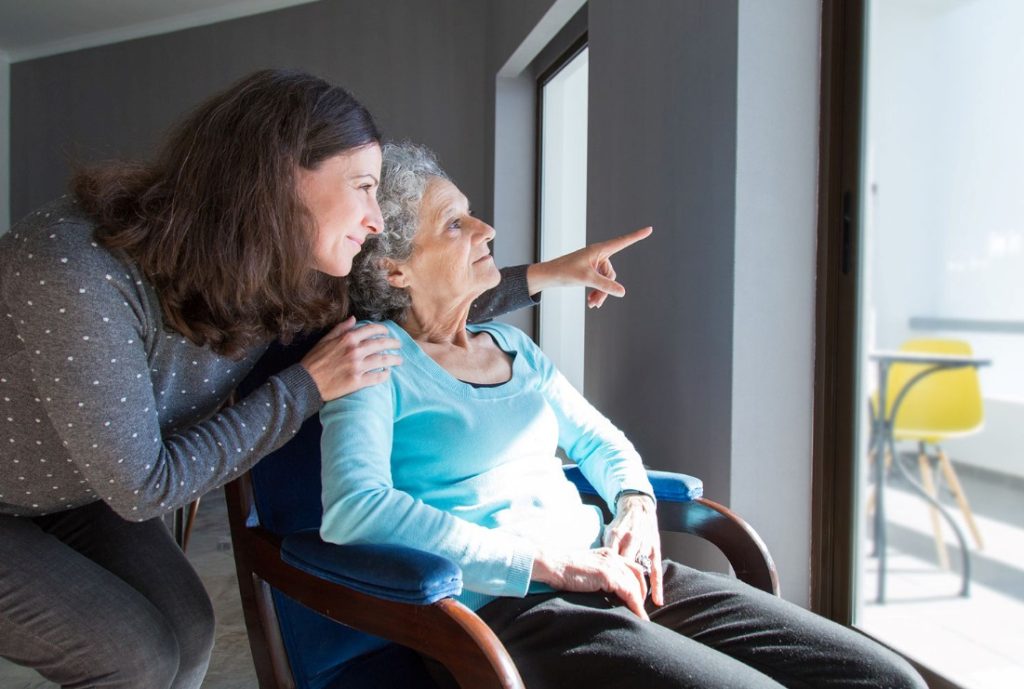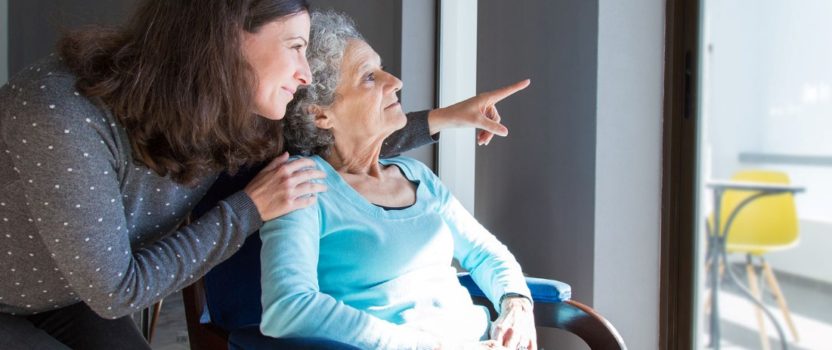How Do I Transition Out Of The Caregiver Role?

You’ve been the one your mom called everyday for everything. You gave her a shower once or twice a week, you set up her medications every week and made sure she took them. You did her laundry and the list goes on and on, but now you’re tired and she’s finally agreed to move into an assisted living community. You should feel relieved right? In this week’s post, we’re taking a closer look at transitioning out of the caregiver role.
Last week our post defined the role of a caregiver. This is because most of the time we identify as just helping mom or dad, but not actually being a caregiver. The truth is, most of the time, we are caregivers. Whether you’re a son, daughter, friend or spouse, caregiving is hard and transitioning out that role can be even harder.
This week we’re going to look at circumstances where you’re now transitioning out of your role as caregiver, why you should consider making the transition, what to expect and tips for letting go.
99% of the time,the families we work with did not intentionally become a caregiver. It’s usually something that starts slowly, sometimes begrudgingly and often becomes overwhelming quickly. Days turn to months and sometimes years, but no matter the extent of your caregiving, from fielding phone calls to attending Dr’s visits or showering and dressing, transitioning out of that role can be difficult.
Let’s look at some reasons you may be transitioning out of your role as caregiver:
-You decide to hire in-home care for your loved one
-Your loved one moves to assisted living, memory care or an adult family home
-Someone else steps in and offers to help
-You sign up for a respite stay at a community and we’re going to talk more about respite in an upcoming episode…
-Or your loved one passes away
For this week’s post, we’re going to focus more on the other reasons I listed because when our loved one passes away there’s so much more to that experience. I will put a link to a couple of episodes we’ve already done that focus on this grieving process.
Now as this transition is made and someone else is providing care, you may still retain some of your role as caregiver. There may still be work to be done, like maybe you’re the one in charge of paying the bills, but in most cases your role will and should change. For example, hiring professional caregivers to come into the home or making a move to a community becomes much more successful when you take a step back and allow the staff to take over. That of course can require an enormous amount of trust in people you just met.
We had a client who was the caregiver for her husband but she was experiencing burnout herself. She just couldn’t be his caregiver any longer. So we found a place that she liked that could provide his care, but unfortunately she just wasn’t able to relinquish her role and this resulted in her interfering with his care, not allowing the staff to do their job and eventually she moved him back home. She just couldn’t allow someone else to do her job.
Now I’m not saying that if you sense something’s wrong with the care your loved one is or isn’t receiving that you shouldn’t say something. You should absolutely step in if something’s not right, but having others provide care is a collaboration and part of that collaboration is allowing them to care for your loved one. It gives you the opportunity to take a step back from the caregiving role and enjoy your time with your loved one.
Why should you consider allowing someone else to be responsible for your loved one’s care? Well, if you’re reading this, I suspect you either know someone who is just plain tired or who’s own health is suffering as the family caregiver. Perhaps that someone is you. You may have heard us talk about how often we see the caregiver get sicker than the one they’re caring for. We’ve mentioned caregiver burnout -it’s real and it can sneak up on you.
We’ve also talked about guilt as guilt tends to be a big reason that many find it difficult to give up their role as caregiver. You know your loved one best, no one can do it better than you, or your mom made you promise that you wouldn’t let someone else come into the home or that she wouldn’t ever have to move.
There are so many reasons that it can be difficult to transition out of the role of caregiver. What are some tips to help ease the transition?
- Recognize your limitations…whether that’s physical or emotional.
- Assess your quality of life and your loved one’s to determine if a move to a Senior Living Community would be better or safer.
- Give up the guilt… while most seniors express their desire to stay home they also express their desire not to be a burden on their family members or friends.
- Reach out to caregiver support groups.
- Ask for help.
When we work with a family to find a senior living option, even if that family member hasn’t expressed their burden of caregiving, we always ask them to recognize that this transition means they’re giving up a role that they’ve been playing. If this is you and you’re facing this transition, recognize that you will feel something. Maybe you’ll feel lonely, sad, or even bored. You may have to rediscover your own hobbies and activities that you used to enjoy. You may feel like you’re losing a part of yourself and your identity. Whatever it is, anticipate, acknowledge and prepare to hopefully make it more doable.



